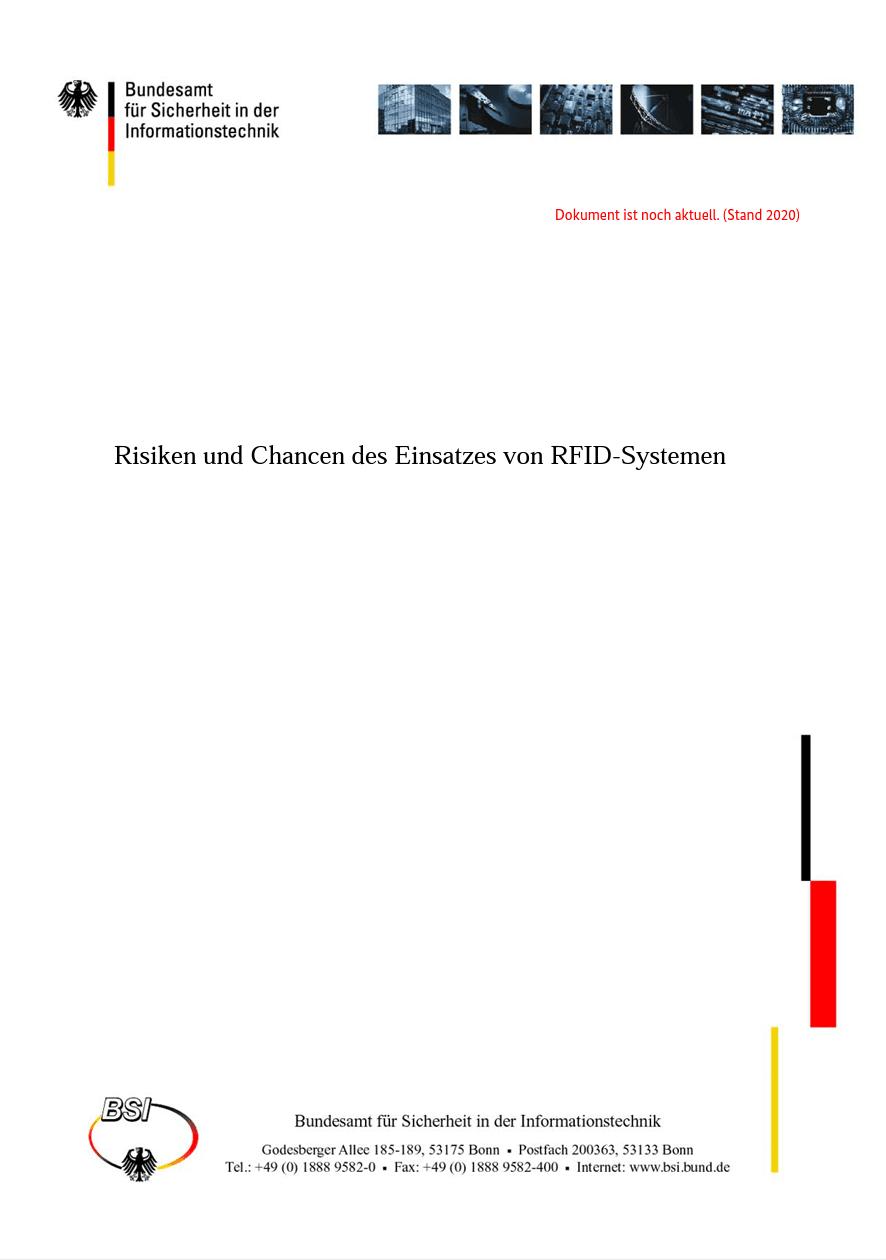Risks and opportunities of the use of RFID systems
Abstract
Trends and developments in technologies, applications and security Foreword The term "revolution" should be used carefully and sparingly. However, in the development of the technology future image of "Pervasive Computing" or "Ubiquitous Computing", we consider it appropriate to speak of a revolutionary technology perspective. This assumption is based on two main reasons: The technology unfolding of Pervasive Computing or Ubiquitous Computing unites very basic techniques such as the use of microprocessors, wireless radio techniques and data transmission through universal networks such as the Internet. Such developments are already emerging today, especially in the areas of "production and goods distribution", "product authentication" and "animal identification". But new potential applications are also clearly visible in the areas of "document authenticity verification", "maintenance and repair", "access and route control", "theft protection" and "environmental monitoring". The plausibility of penetration into all areas of life arises above all from the most important characteristic of the underlying technologies, an increase in efficiency in terms of labour input, time and space, as well as a faster ability to react to changes in object parameters. The associated innovation and automation potentials are strong incentives for rapid implementation in an increasingly internationalised competitive economy. Against this background, there can be little doubt that automatic identification systems (auto-ID systems), in particular, which are already advanced today, will be increasingly used, especially in those industries where productivity advances can be achieved through increased automation. This is especially true for RFID systems (Radio Frequency Identification), which expand the functions and application possibilities of previous solutions for auto-identification such as barcodes or Optical Character Recognition (OCR) and can be understood as a central step towards further integrating technology development in the direction of "Pervasive Computing" or "Ubiquitous Computing". As always with revolutionary technological advances, the opportunities and risks are close together. In social terms, the risks include above all the consequences of the expected rationalisation effects and new models of work organisation in already highly mobile and volatile living and working environments. In ecological terms, it is the ubiquitous use of technical microsystems that leads us to expect enormous rebound effects and an increasing fine distribution of valuable materials and ecologically questionable ingredients of electronic products. Against this background, it is therefore one of the most important tasks of science to point out the opportunities, but also the problems and risks, at an early stage and as comprehensively as possible. The socially acceptable design of technology involves the balancing and previously the confrontation between different social interest groups as well as economic and political actors. If the movement and use of everyday objects leaves data traces that are increasingly beyond the user's control, this can have profound implications for our understanding of security and privacy. Building on an assessment of the consequences of technology and in permanent feedback from science and society, a public dialogue must be conducted with politics, business, civil society groups and organisations as well as citizens about these problems. Only in such a technical-scientific supported public discussion process can it be found out which desirable goals should be targeted and which technology developments are suitable for maximising the opportunities and avoiding or at least minimising the risks. In this sense, the present study provides an overview of the central technological developments and economic application areas of RFID systems. In addition, the fundamentally possible threat situations are analysed and common security measures are outlined. Berlin and St. Gallen, October 2004 Prof. Dr. Rolf Kreibich Dr. Xaver Edelmann
